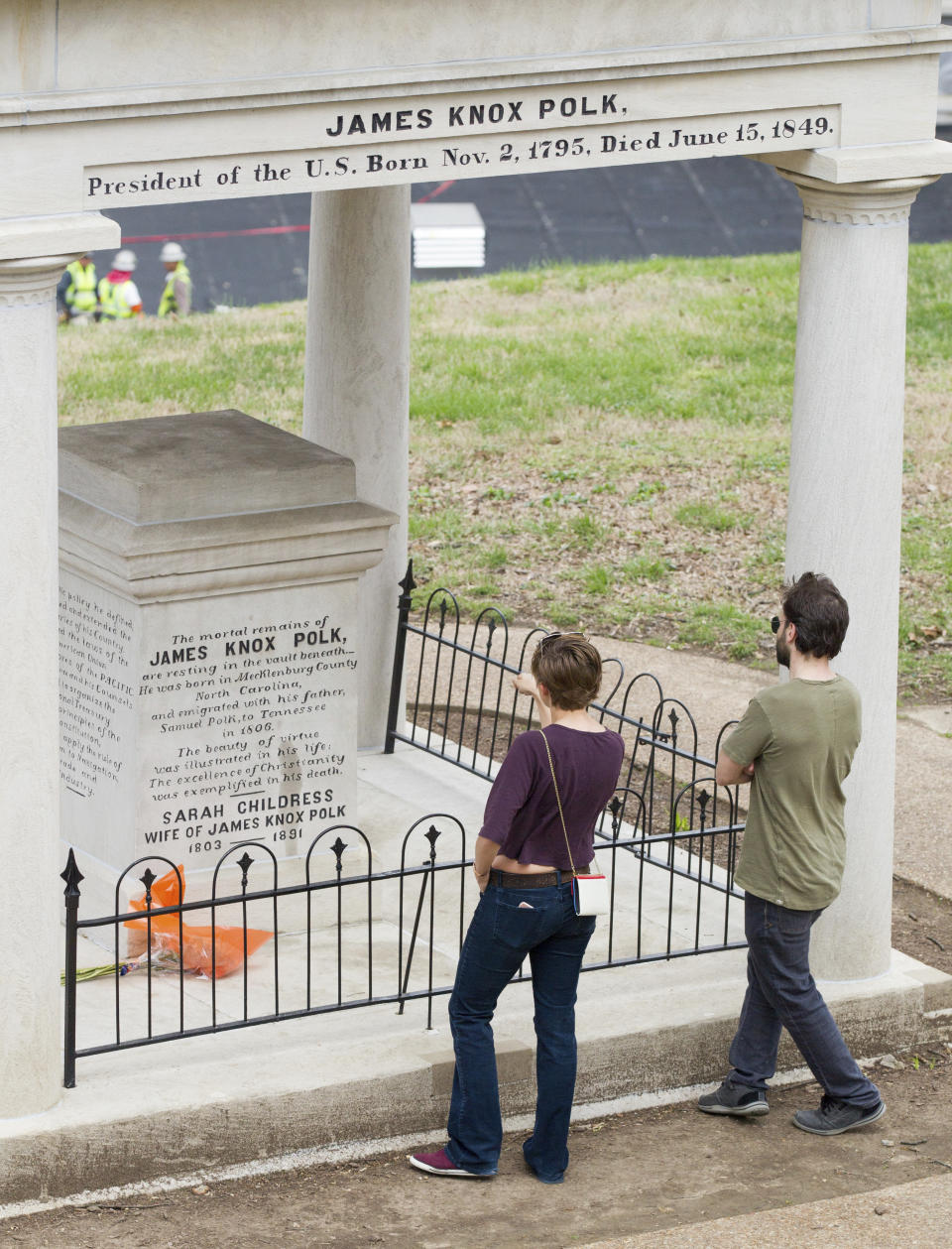Plan to dig up President Polk's body _ again _ stirs trouble
NASHVILLE, Tenn. (AP) — President James K. Polk did big things for America, dramatically expanding its borders by annexing Texas and seizing California and the Southwest in a war with Mexico. Achieving undisturbed eternal rest has proved more difficult.
In a proposal that has riled some folks in Tennessee, including a very distant relative of the nation's 11th president, some state lawmakers want to move Polk's body to what would be its fourth resting place in the nearly 170 years since he died of cholera.
The plan is to exhume Polk's remains and those of his wife, Sarah, from their white-columned tomb on the grounds of the state Capitol in Nashville and take them about 50 miles to his father's home, now known as the James K. Polk Home and Museum, in Columbia. A vote on the resolution could come as early as Monday.
Teresa Elam, who says she is a seventh-generation great-niece of the childless Polk, called the whole idea "mortifying."
"I got so upset about it because they're going to take these bodies of these fine, wonderful people and bring them down to Columbia and put them on display to make money," she said.
Backers of the resolution, including Sen. Joey Hensley, a Republican whose district includes the museum, have argued that Polk's tomb is in an out-of-the-way spot on the Capitol grounds and that he deserves better.
"I think I have been here 14 years and really didn't know, had never visited James K. Polk's tomb," Hensley said.
The curator of the Polk museum, Thomas Price, who also backs the idea, argues that Polk spent a lot of time in Columbia and that museum visitors constantly ask why the former president isn't buried there.
"We've been open since 1929," Price said of the museum. "If this were merely a matter of money we probably would have done it 50 years ago."
Polk died in 1849, just three months after leaving the White House, and was originally laid to rest in what is now the Nashville City Cemetery because of an ordinance that said people who died of infectious diseases had to be buried on the outskirts of town within 24 hours. Less than a year later, he was moved to a tomb in the yard of his Nashville mansion, just as he had specified in his will.
Then, after his widow's death in the 1890s, the two of them were buried on the Capitol grounds. (The mansion itself was sold to someone outside the family and was then demolished in 1901.)
While he is often overshadowed in the history books by fellow Tennessean Andrew Jackson, Polk, a former Tennessee governor who chose to serve only one term as president, played a central role in helping the U.S. spread across the continent and realize what many Americans considered their Manifest Destiny.
He is probably America's most successful one-term president, said Walter Borneman, the author of "Polk: The Man Who Transformed the Presidency and America." The United States, Borneman said, doubled in size during Polk's presidency.
Jeff Yarbro, a Democratic state senator from Nashville, said the Polks' relatives paid to have them taken to the Capitol and would have known their wishes better than those trying to move the bodies now. Lawmakers, he said, need to be careful here.
"There are only 45 people who've been president of the United States," Yarbro said, "and if a few years from now there's a crew with shovels in the front yard of the Capitol, it's going to be a national news story, and there's going to be a lot of appropriate scrutiny on how this process got initiated."





